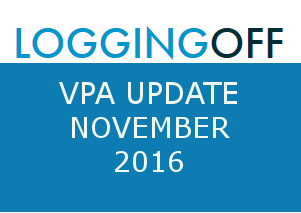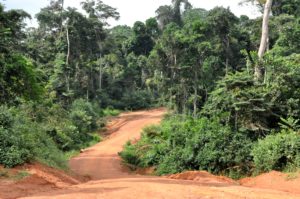
This is the Cameroon update for Forest watch special: VPA update November 2016.
Official VPA status: in implementation since 2011
 The VPA implementation process in Cameroon is stalled.
The VPA implementation process in Cameroon is stalled.
The EU and Cameroon agreed to revise the VPA legality grids in response to the Independent Auditor’s 2014 report (which entered the public domain via a leak in late 2015), but it seems there has been little action since the commitment was made. CSOs are demanding that the governance and rights recognition requirements already included are not removed, or weakened in any revision of the VPA texts.
The good news is that access to forest-related information has improved in Cameroon. More than 80% of the documents to be made public according to the VPA transparency annex (annex VII) are now available on the Ministry of Forests (MINFOF) website. Moreover the tension observed in 2015 between civil society and the government has softened slightly, probably due to personnel changes within MINFOF. The IT forest information management system (SIGIF II) is not yet up and running. Despite strong objections from civil society groups including FODER, the 2016 finance law (adopted late 2015) failed to reinstate the requirement for affected communities to receive 10% of royalties (RFA – redevances forestières annuelles) from logging operations. The long-established 10% RFA was abandoned in the 2015 budget. FODER’s campaigning did successfully claw back some benefit sharing provisions – communes (a local administrative unit) are now granted 27% of the original RFA. However communities have limited control over how the funds are used. The issue has attracted media attention in Cameroon, but it looks unlikely that the Government will meet these demands in a new finance law to be adopted at the end of the year. In a context where corruption is again on the rise in Cameroon, Civil society will continue to fight for fair and just benefit-sharing arrangements and reintroduce the 10% RFA.
Timber from Cameroon is coming under increasing scrutiny in international markets as independent observers have classified Cameroon as a high risk country. In March 2016, the Dutch competent authority sanctioned a Dutch timber importer for having placed timber originating form Cameroon on the EU market without a fully functioning due diligence system, in violation of the EU Timber Regulation[1].In June UK competent authorities took action against 14 UK importers sourcing timber from Cameroon linked to illegal logging.
This is an entry from the latest Forest Watch special VPA update, an occasional publication by LoggingOff and Fern. The VPA update provides a roundup of developments across countries involved in VPA processes, from a civil society perspective. This edition is from November 2016.
